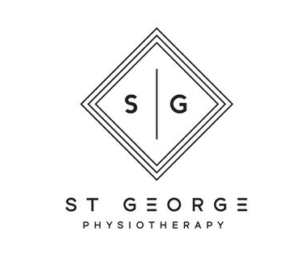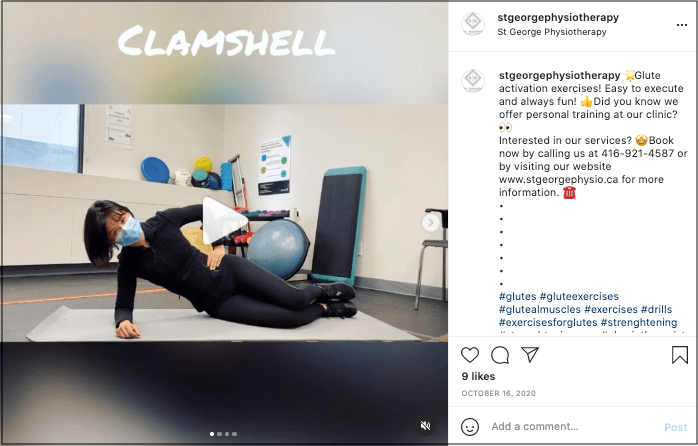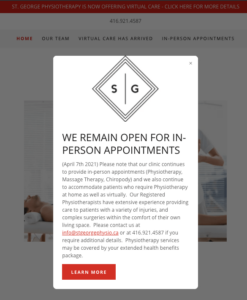If you ask Sameer Chunara, owner of Toronto’s St. George Physiotherapy Clinic, about the impacts of working from home and the toll it’s taking on our health, he’d say, “We have an epidemic within a pandemic.”
Waves of lockdown and prolonged isolation have spurred a new level of sedentary living.
“People used to walk to work or commute using public transit. Even those who drove to the office would take a few steps here and there as they grabbed a coffee or met a client for lunch. These mini escapes alleviated the strain of sitting at a desk for eight hours a day.”
“We thought our working environment was sedentary before the pandemic and didn’t think it could get any worse,” said Chunara. “We’ve redefined sedentary now. What we’re seeing in our patients is an increase in neck, back and shoulder pain. A lot of younger people – younger than we generally see – are starting to present these issues earlier in life.”
Early injury leads to a new focus
Chunara has owned St. George Physiotherapy Clinic for nearly 15 years and his introduction to the profession was somewhat accidental.
He was working toward an Honours Bachelor of Science degree at the University of Toronto, with sights set on getting into med school, when he separated his shoulder playing rugby.
It was through injury that he experienced first-hand how a physiotherapist could nurse him back to health. While being in the shoes of a patient, Chunara paid close attention to the way he was being treated and the practices that were put in place. Actions that aligned with his health care ideologies.
Saying yes to opportunity

After completing the Masters of Science in Physiotherapy program at McMaster University, Chunara went straight into the clinic environment, joining the interprofessional health care team at St. George Physiotherapy Clinic in 2005.
When the owner passed away, the family was looking to sell the company and Chunara, having always harboured entrepreneurial aspirations, decided to take it over with a strategic partner.
“I thought to myself, if they’re going to sell the clinic, who knows what’s going to happen to the legacy that this gentleman built; who knows what happens to the staff,” he said. “If new owners come in, they could potentially do whatever they wanted. I had an opportunity to nurse the business back to life.”
Chunara has done just that. He expanded the 1,000 sq. ft. space to 2,000 sq. ft.; leads with a health care first, business second mindset; inspires the staff to shine in what they do best; and upholds the clinic’s core values where staff, both new and seasoned, are dedicated to providing timely, accessible care for patients.
Rising to pandemic challenges
The resiliency Chunara formed through being a first-time business owner has served him well.
When the COVID-19 pandemic impacted the business, and they were forced to shut down for three months, he treated it as an opportunity to reflect on the services the clinic provided.
“It gave us time to develop our business so we were able to meet the needs of our community during the pandemic, but also look to the future to prepare for the demands that could potentially arise when things return to normal.”

Once the clinic reopened, Chunara noticed an increase in patients who were COVID-19 survivors. Many of which were experiencing long COVID-19 symptoms, such as fatigue, muscle weakness and lack of energy.
There is a really interesting change in what we’re seeing in our population and we have to make sure that we can evolve to meet their needs.
“That means different things for different groups of people. From a physiotherapist’s perspective, it makes everything much more exciting because you’re challenged to find new, transformative ways to provide care.”
A move online
Since the start of the pandemic, Chunara has moved five to 10% of the clinic’s services online, providing virtual care. It’s a small but necessary shift. One that benefits those who are immunocompromised and may put themselves at greater risk while travelling to an in-person appointment.
One of the main ways Chunara connects with patients is through the clinic’s GoDaddy website. As a health care service, being able to swiftly communicate Health Canada changes at a moment’s notice is paramount.

The website tools and platform that GoDaddy offers for small businesses are wonderful.

“It’s one of the main ways that I communicate with my community. I can quickly publish updates to regulations and inform patients about what the expectation is for in-person appointments, such as masking.”
“There are so many useful integrations that I haven’t even fully taken advantage of yet, and I’m really excited to grow my website.”
For many small businesses, it’s difficult to create and carve out a budget for marketing. It’s often a role business owners like Chunara take on themselves. The flexibility and opportunity which GoDaddy provides makes space for small businesses to remain competitive.
“GoDaddy helps small businesses get noticed,” he said. “It helps us get recognized in ways that we would not be able to do on our own. It’s nice to see that the company itself is able to give to small businesses, some of which are really struggling at this time.”
Looking to the future
One way Chunara is distinguishing St. George Physiotherapy Clinic is through blogs. With the assistance of a University of Toronto student, Chunara publishes content from a patient’s perspective.
“It’s one thing for me to say, as an industry professional, what back pain is,” he said. “With the blog, we can talk about back pain from the perspective of a patient. We don’t get enough of that. We often treat the physiotherapist, or the health care provider as an expert, but patients are also experts in their care. It’s important to hear their voice in educating and creating content for the community.”
As Canada starts to heal from the pandemic and the country’s collective health restores, Chunara is looking ahead to the future.
“This time, during the pandemic, has really reinvigorated my passion for being able to develop as a business and provide services for people in our community,” he said. “At the end of the day, a health care business is only as successful as the kind of care it can provide for patients. The care has to be timely, accessible, and well put together. You’re always listening and engaging with your community to provide what they need.”
Related: How to start a health and wellness blog







